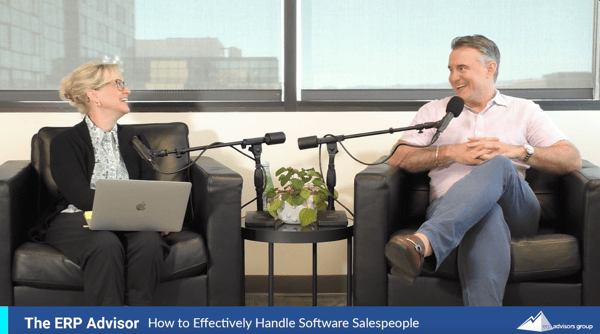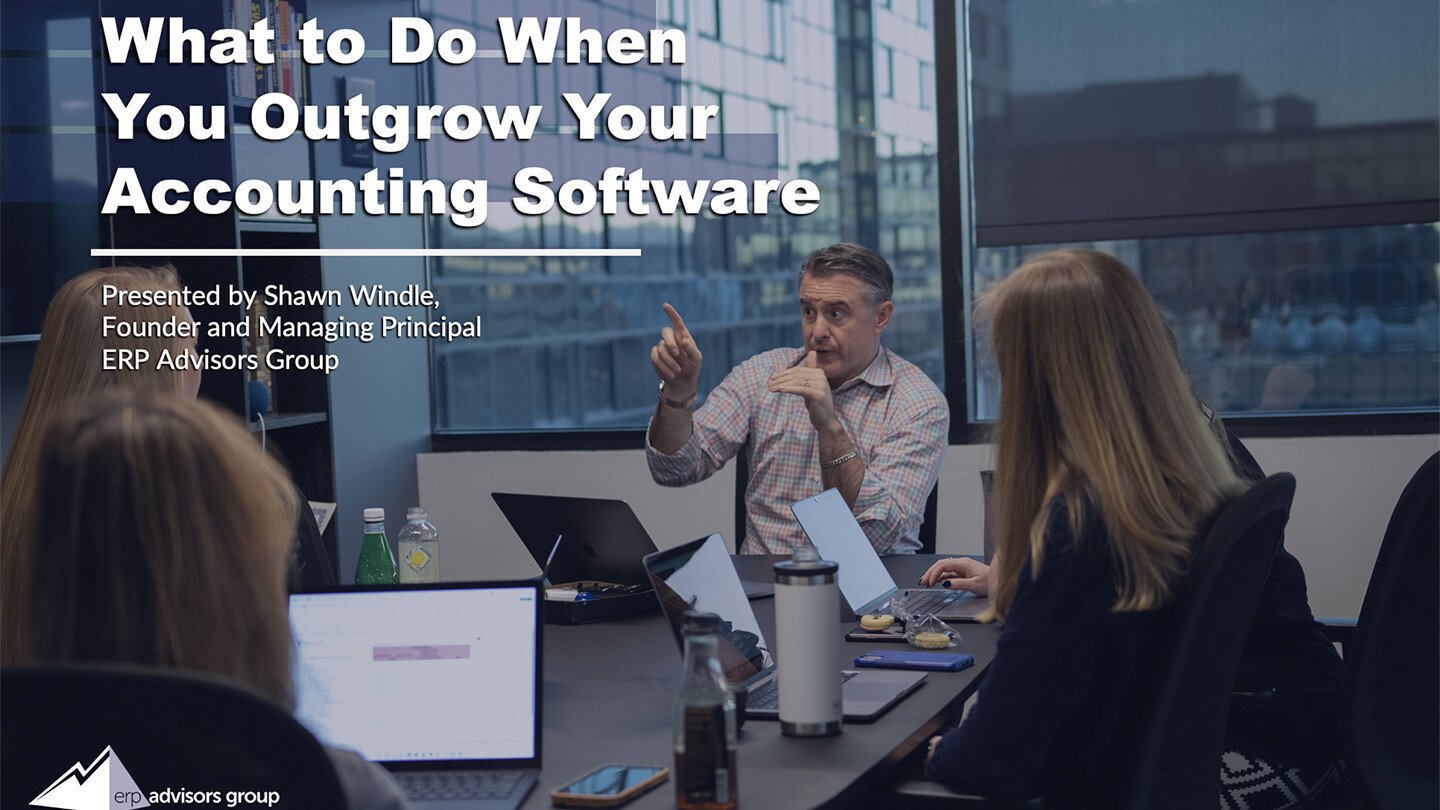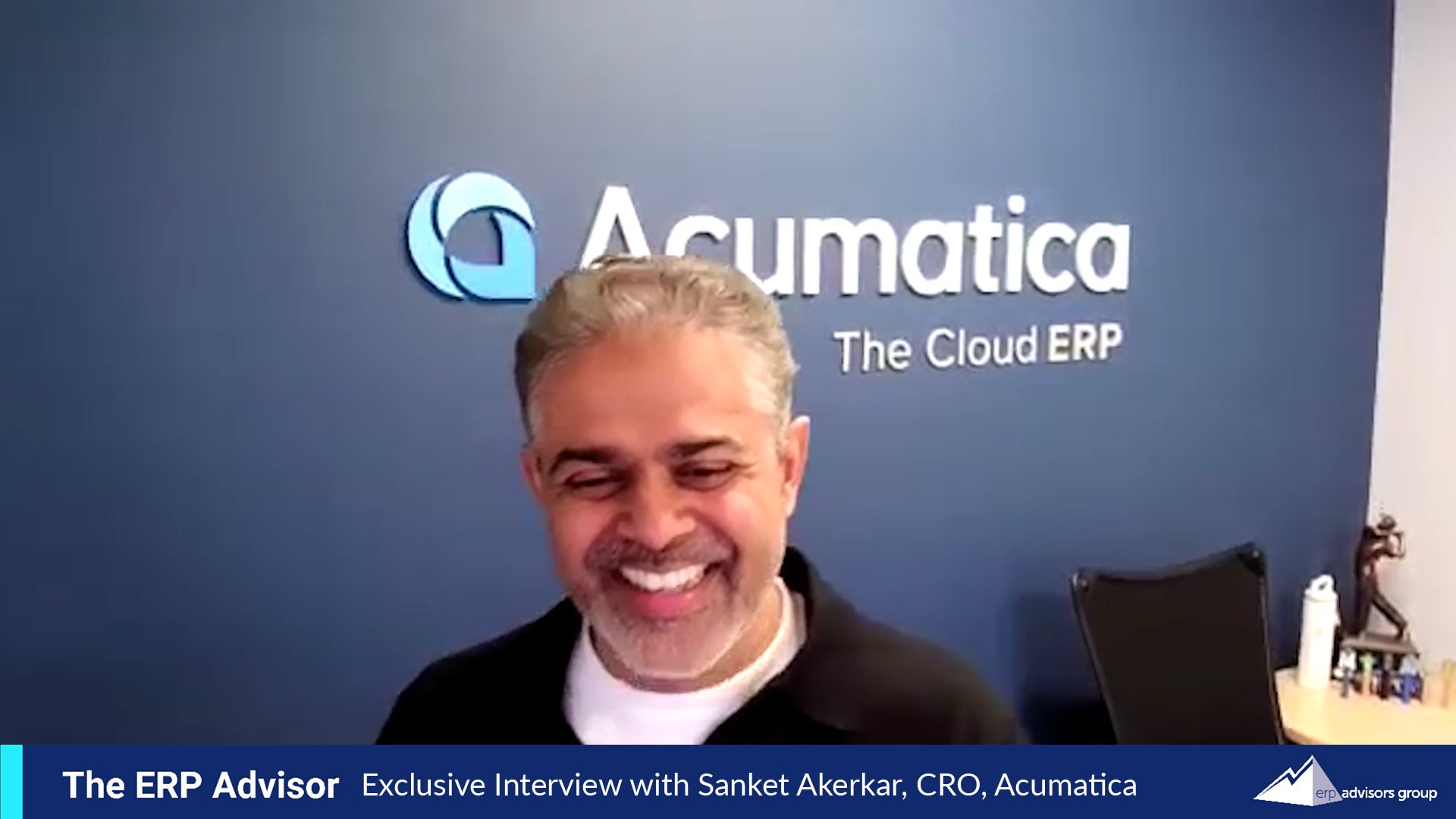
The process of ERP selection is hard enough without the added complexity of navigating software sales tactics, demonstrations, and negotiations. Interacting with software salespeople from multiple vendors can absorb significant time and knowing how to vet what they tell you versus what’s true is critical if you hope to buy the right product and services. In this special selection mini-series, ERP expert, Shawn Windle, will guide businesses in building their skills to effectively handle software salespeople.
How to Effectively Handle Software Salespeople
The ERP selection process can be overwhelming, especially when managing relationships with software salespeople on top of trying to select the right solution for your business. This added layer of difficulty can be a lot to navigate, even for those who have experience with ERP projects. Business leaders can take simple steps to ensure successful interactions during this process, but they must know how to properly interact with the software salespeople managing their sales process.
The Importance of Understanding Your Needs
Prior to ever contacting or interacting with a software salesperson, you must have a thorough understanding of your business requirements. If you do not understand what your business needs, you will never be able to communicate them to the software salesperson or ensure the product is actually meeting your requirements. Additionally, software salespeople can be extremely persuasive and are experts at selling their software’s functionality; however, that functionality may not be EXACTLY what your company needs due to operational nuances. By understanding its requirements, a business can more effectively communicate and evaluate its ideal future scene and how potential products will fit into that image.
How Do You Determine Who to Call?
If you are confronting the need for an ERP upgrade can begin by simply Googling the best ERP for your industry or processes. While there will always be the “popular”, recognizable ERP vendors, other solutions often emerge and should be included in your initial research to provide a general idea of all available options. It is best to avoid the advertisements, as they will not provide objective information, however, sites like G2 and Capterra are still great resources for product reviews, functionality, and more. When conducting your research, you will begin to see some names over and over again, this redundancy provides an introduction to the best solutions for your industry. From here, you can craft your “shortlist” and begin contacting those vendors.
Be aware that this is an extremely simplified way for ERP “DIYers” to tackle the process, but an ERP Selection Consultant would provide much deeper guidance.
How to Verify the Knowledge & Experience of a Software Salesperson
As a warning, the very first person you interact with when calling an ERP software vendor will likely be a “qualifier”, someone who is there to determine your initial qualifications and business overview. They will ask questions about your industry, size, revenue, and more to determine if their solution is the right fit for you and if your business is a good fit for them. Additionally, they will utilize this information to connect you with the sales team or person who has the right industry experience and expertise. When working with a vendor who has developed a sound qualification process, you will eventually reach the most qualified individual and will truly be able to begin collaborating with the right representative.
Once you reach a qualified individual, there are key indicators you should look for (and questions you should ask) to determine the credibility and cultural fit of the person. These include:
- Does the person really know what they are talking about? This can be done by observing the questions they ask and the experiences they discuss. Are they asking good questions? Does it seem like they have actually done this before? Or are they just trying to make a sale?
- When evaluating their questions, does it seem like they have worked with organizations similar to yours before? Weird questions that have very little to do with the standard operations of your industry may be major red flags.
- Do you like them? Are they polite and courteous? Or do they cut you off? It is vital that you like this person because you will be working with them a lot during the selection process. The worst thing you can do is to end up with someone who does not work well with your team.
At the end of the day, there are lots of great salespeople, but as the project sponsor, you need to be all in and carefully vet the vendors you will be working with. The best partner during the sales process is one who is kind and easy to communicate with, is genuine and transparent, and is knowledgeable of the product they are selling. Someone without these characteristics will not be a good partner in the long term and when it is not a good fit for one party, it is probably not a good fit for anyone involved.
Who Should Be Involved in the Process?
The project sponsor should not involve others in the qualification process until they have vetted all vendors and individually qualified the solutions themselves. Too many project sponsors overlook this step and involve others too early, often resulting in disappointment and time wasted in poorly executed demos. Consequently, other project participants will be upset and may even disqualify the best-fit solution, just because the software vendor was ill-prepared. Whenever possible, the project sponsor should conduct their own discovery and demos with the vendors. Do not undervalue the role of preparation prior to putting someone in front of your people because the best vendors will also use this time as an opportunity to vet your business and prepare for a good showing.
Tip: While the software salespeople are extremely important, it is also important to involve solution consultants early in the process because they are the ones who can answer the technical questions and ultimately close the deal. Therefore, when organizing your demos, request the presence of solution consultants and members of the implementation team early on.
Conclusion
A successful software selection depends on great software salespeople and the relationships built with those individuals. When speaking with a software salesperson, you are assessing their ability to take responsibility and understand your business. When that person is willing to take on a lot of responsibility and own their role, they will be honest and transparent with you about their ability to meet your needs, which is why these initial indicators are just as important as the software’s functionality. Stumped by ERP selection? Download your guide to vetting ERP software solutions below or schedule a consultation with an expert ERP Selection Consultant.





